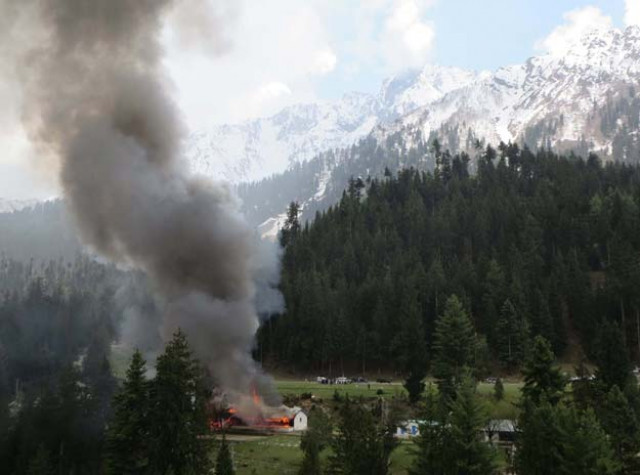A tragic crash
At the very least there needs to be an urgent review of the serviceability and operation of our transport helicopters

Flame and smoke rises from the site where a military helicopter crashed in the northern area of Gilgit on May 8, 2015. PHOTO: AFP
As of now, the reason why the helicopter went down is said to be because of a technical fault, according to the Director General of the Inter-Services Public Relations, with the defence minister stating that further investigations into the causes of the tragedy will be carried out. A board of inquiry has been established to determine the cause of the crash and the prime minister has announced a day of mourning for the victims.
If the crash is indeed the result of a technical fault, it will not be the first time this has happened. There have been at least four such crashes due to technical faults (or unknown causes) since 2004 killing at least 63 people. Pakistan has an aging fleet of transport helicopters and is cannibalising some for parts to keep others in the air. At the very least there needs to be an urgent review of the serviceability and operation of our transport helicopters, and equally a review of the protocols that allow so many high-value targets to be clustered inside a single airframe. This tragedy could have disastrous consequences — again — for the tourism industry in the region which was just beginning to revive after a long, dry spell that had seen the number of tourists to the area decline considerably. We extend our deepest condolences to the families of the victims.
Published in The Express Tribune, May 9th, 2015.
Like Opinion & Editorial on Facebook, follow @ETOpEd on Twitter to receive all updates on all our daily pieces.















COMMENTS
Comments are moderated and generally will be posted if they are on-topic and not abusive.
For more information, please see our Comments FAQ